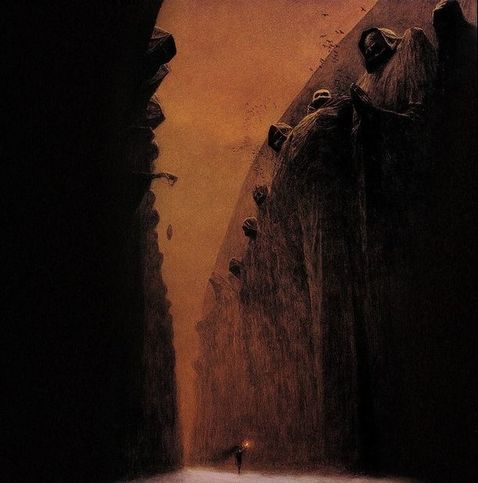The Weird Tradition

The Weird tradition is most often associated with the works of H.P. Lovecraft (1890-1937), who first named and theorized it, but it also derives from any work that generates a sense of cosmic horror. Where the Gothic tradition tends towards the hauntological, or uncanny, the Weird tends towards the radically other, undefinable abcanny, though its sublime terrors are often a combination of both. Most important for the Weird tradition is the sense that humanity is an insignificant, ephemeral blot on something much larger, much greater, something all-engrossing, all-consuming.
The implications extend beyond morals and into the very mysteries and significance (or lack thereof) of human existence against deep history. The Weird is thus somewhere between a sub-genre that combines horror, dark fantasy and science fiction, and a worldview that often derives its critique from a nihilistic and negativistic philosophical take on reality. We will explore these and other questions in literary works by William Blake, William Shakespeare, Edgar Poe, H.P. Lovecraft, Shirley Jackson, Joyce Carol Oates, Algernon Blackwood, Arthur Machen, China Miéville, Caitlín Kiernan, and others.
The implications extend beyond morals and into the very mysteries and significance (or lack thereof) of human existence against deep history. The Weird is thus somewhere between a sub-genre that combines horror, dark fantasy and science fiction, and a worldview that often derives its critique from a nihilistic and negativistic philosophical take on reality. We will explore these and other questions in literary works by William Blake, William Shakespeare, Edgar Poe, H.P. Lovecraft, Shirley Jackson, Joyce Carol Oates, Algernon Blackwood, Arthur Machen, China Miéville, Caitlín Kiernan, and others.
